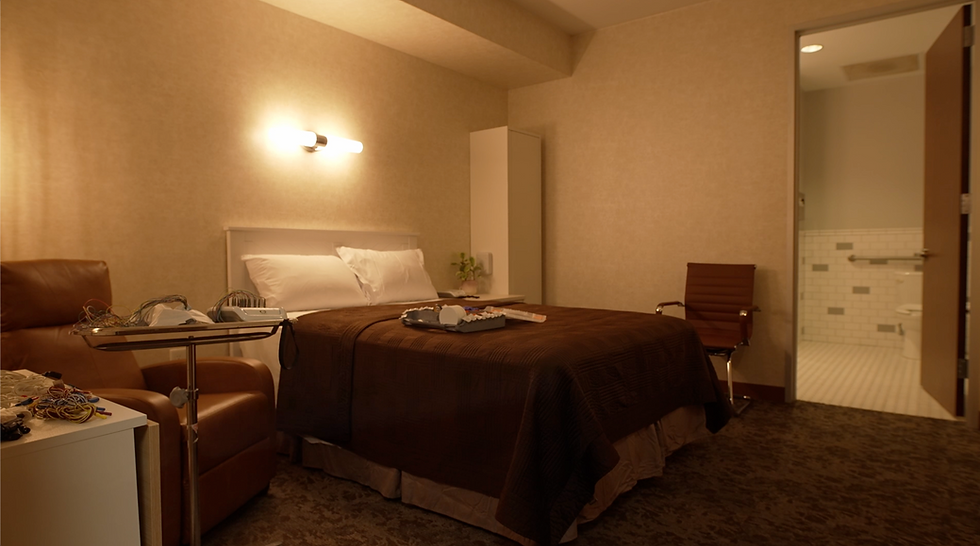Common Sleep Disorders in Austin, TX: Signs, Symptoms, and Solutions
- CSMA Team

- Nov 21, 2025
- 3 min read
Quality sleep is essential for your health, mood, and daily performance — yet millions of people struggle each night without realizing what’s really behind their exhaustion. If you’re constantly tired, cranky, or unable to focus, you may be dealing with one of the many sleep disorders common in Austin, TX.

At Comprehensive Sleep Medicine Associates (CSMA), our specialists diagnose and treat a wide range of sleep disorders using advanced testing and personalized care. Whether you’re in Austin or Houston, our team provides expert evaluation to help you finally get the sleep your body needs.
Understanding Sleep Disorders in Austin, TX
Sleep disorders are more than just bad nights — they are medical conditions that affect your brain, breathing, and sleep-wake cycles. Left untreated, they can lead to serious issues such as high blood pressure, depression, accidents, heart disease, memory problems, and more.
Here are some of the most common sleep disorders in Austin and Houston, TX, and the symptoms that may signal it’s time to seek help.
1. Insomnia
Insomnia is one of the most widespread sleep issues. It involves difficulty falling asleep, staying asleep, or waking too early.
Common symptoms include:
Racing thoughts at night
Lying awake for hours
Waking frequently
Feeling unrefreshed in the morning
Insomnia can be caused by stress, anxiety, pain, poor sleep habits, or underlying medical conditions — and it often becomes chronic without the right treatment.
2. Sleep Apnea
Sleep apnea occurs when the airway repeatedly collapses during sleep, causing breathing to stop and restart. This leads to fragmented sleep and drops in oxygen. It's not just a condition found in older men–in fact, snoring and sleep apnea can be found in women, children, and even infants.
Signs you may have sleep apnea:
Loud snoring
Morning headaches
Choking or gasping at night
Untreated sleep apnea is linked to heart disease, high blood pressure, stroke, diabetes, and memory problems. Accurate diagnosis and treatment are essential.
3. Restless Legs Syndrome (RLS)
RLS causes uncomfortable sensations — such as tingling, crawling, or aching — that create an irresistible urge to move your legs, especially at night.
Common symptoms:
Leg discomfort while sitting or lying down
Relief only when moving
Difficulty falling asleep
Chronic fatigue
RLS may be related to iron deficiency, dopamine imbalance, or neurological conditions.
4. Narcolepsy
Narcolepsy is a neurological sleep disorder that affects the brain’s ability to regulate sleep-wake cycles.
Symptoms include:
Excessive daytime sleepiness
Sudden sleep attacks
Muscle weakness triggered by emotion (cataplexy)
Sleep paralysis or hallucinations
Narcolepsy is often misunderstood or misdiagnosed — but with proper care, patients can regain alertness and stability.
5. Upper Airway Resistance Syndrome (UARS)
UARS is a subtle sleep-breathing disorder caused by increased resistance in the airway. Unlike sleep apnea, oxygen levels may remain normal — but the breathing effort causes repeated micro-arousals.
Signs of UARS:
Light snoring
Feeling tired even after “sleeping all night”
Morning headaches
Anxiety or irritability
TMJ, jaw tension, or night/sleep bruxism
UARS is frequently missed in standard sleep studies. This is why having an evaluation at a specialty or comprehensive specialty clinic is especially important.
6. Parasomnias
Parasomnias are a group of sleep disorders characterized by abnormal behaviors, movements, emotions, perceptions, or dreams that occur while falling asleep, sleeping, or waking up.
Parasomnias behaviors during sleep include:
Sleepwalking
Night or sleep terrors
Sleep-related eating disorders
REM sleep behavior disorder (acting out dreams)
Sleep paralysis
Sleep talking
These conditions can be disruptive — and potentially dangerous — without proper diagnosis and treatment.
When to See a Sleep Medicine Specialist?
You should schedule an evaluation with an Austin sleep specialist or Houston sleep doctor if you experience:
Persistent daytime fatigue
Loud snoring or breathing issues at night
Trouble staying asleep
Unusual nighttime behaviors
Unrefreshing sleep despite 7–8 hours in bed
Sleep disorders rarely improve on their own — but with expert care, you can experience dramatic improvement in energy, mood, and health.
Take the Next Step Toward Better Sleep
If you’re struggling with sleep disorders in Austin, TX, or need the expertise of a trusted Houston sleep doctor, CSMA is here to help.
📞 Contact Comprehensive Sleep Medicine Associates (CSMA) in Austin or Houston today to schedule your comprehensive sleep evaluation. Your best nights — and better days — are waiting.





Comments